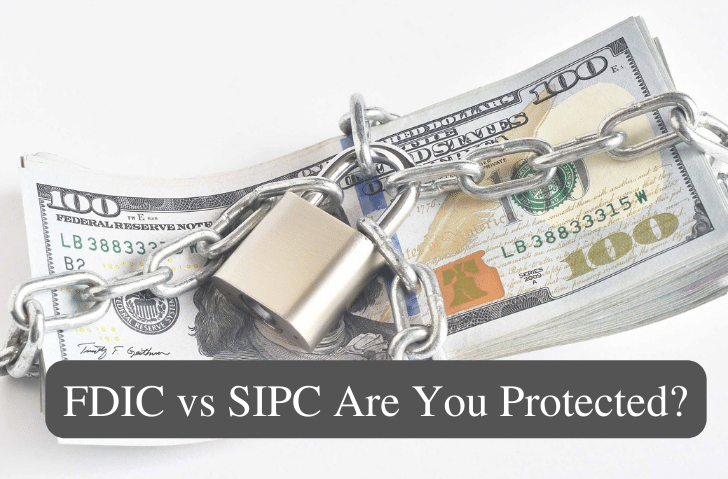As an investor, you want to protect your assets and ensure that your money is secure. Two organizations that provide this type of protection are the Federal Deposit Insurance Corporation (FDIC) and the Securities Investor Protection Corporation (SIPC). While both FDIC and SIPC protect investors, they do so in different ways, and it’s important to understand how each works to make informed decisions about where to keep your money.
FDIC vs. SIPC
The FDIC is a U.S. government agency that provides deposit insurance to protect depositors in case their bank fails. This protection covers deposits of up to $250,000 per depositor, per insured bank, for each account ownership category.
On the other hand, the SIPC is a nonprofit corporation established by Congress to protect investors against the loss of cash and securities in the event that their broker-dealer fails. The SIPC does not insure against market losses or fraud, but rather protects investors against the loss of securities and cash held by a broker-dealer up to $500,000, including up to $250,000 in cash.
It’s important to note that SIPC protection is not the same as FDIC protection. The SIPC does not provide insurance in the same way as the FDIC, but rather acts as a backstop to protect investors against the loss of securities and cash held by a broker-dealer.
Using a Money Market Fund as Additional Protection
While the SIPC provides some protection against the loss of cash held by a broker-dealer, investors can also use a money market fund as additional protection. A money market fund is a type of mutual fund that invests in short-term, low-risk securities, such as government bonds and commercial paper.
Money market funds are designed to maintain a stable net asset value (NAV) of $1 per share, making them a low-risk investment option for investors who want to protect their cash while earning a small return.
By investing in a money market fund, investors can effectively double their protection against the loss of cash held by a broker-dealer. For example, if an investor has $500,000 in cash held by a broker-dealer, they would be covered for up to $250,000 by the SIPC. By investing the remaining $250,000 in a money market fund, they would effectively have an additional $250,000 in protection.
In conclusion, the FDIC and SIPC both provide important protections for investors, but in different ways. While the FDIC insures bank deposits up to $250,000, the SIPC protects investors against the loss of securities and cash held by a broker-dealer up to $500,000. Investors can also use a money market fund as additional protection to safeguard their cash holdings. By understanding the different types of protection available and how they work, investors can make informed decisions about where to keep their money.
If you have any questions about how to use a money market account for retirement purposes, contact us.

